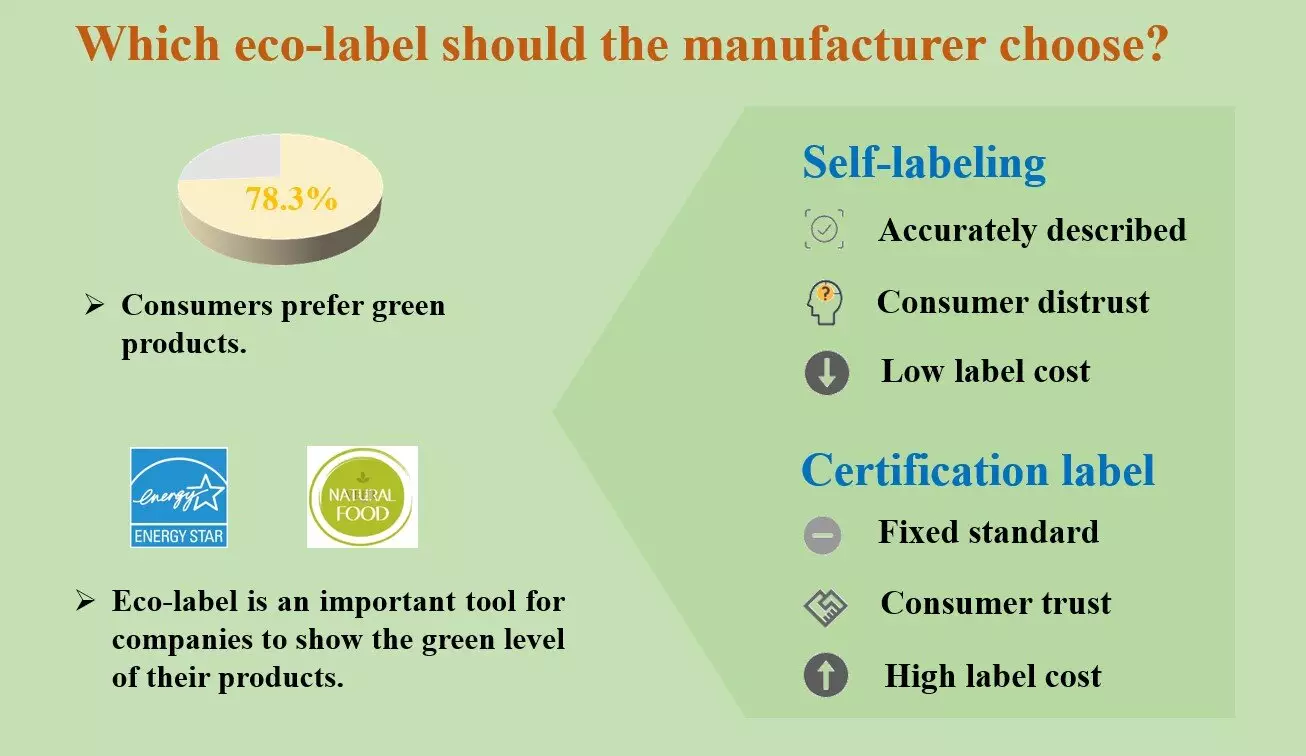The rise of the green lifestyle has been a significant trend in recent years, with more and more consumers prioritizing environmentally friendly products. According to the 2023 China Consumption Trend Report, a staggering 73.8% of customers now actively seek out products that are eco-friendly.
The Role of Eco-Labels in Green Products
In response to this growing demand, companies have been utilizing tools such as eco-labels to demonstrate the green attributes of their products to consumers. Eco-labels can come in the form of certification labels issued by third-party bodies like Energy Star and Organic Food, or self-labeling done by the manufacturer themselves.
A research team led by Professor Gaoxiang Lou and Professor Yi-Ming Wei conducted a study on eco-label selection in green supply chains. The study focused on a game model involving a manufacturer and a supplier, where the supplier provided green raw materials and the manufacturer carried out green manufacturing and selected eco-labels for products.
Conflicting Preferences in Eco-Label Selection
The researchers discovered that there were conflicting preferences between upstream and downstream companies in the supply chain when it came to eco-label selection. While the supplier favored certification labels, the manufacturer leaned towards self-labeling, even though opting for certification labels could lead to higher social welfare.
Need for Coordination Among Supply Chain Members
Based on their findings, the researchers emphasized the importance of coordination among supply chain members to address these conflicting preferences. Further collaboration and communication are necessary to ensure that the entire supply chain operates smoothly and efficiently.
In addition, the researchers proposed expanding certification label levels from a single level to multiple levels. By introducing multi-level certification labels, such as the Cradle to Cradle Certified divided into five levels, companies can better cater to consumer preferences and increase trust in their products.
The researchers also noted an interesting result – when companies opt for single-level certification labels, increasing consumer green preferences can actually be detrimental to profitability. This is because as consumer green preferences rise, certification agencies may impose stricter standards, leading to higher costs for companies.
The study sheds light on the complexities of eco-label selection in green supply chains and highlights the importance of understanding consumer preferences, coordinating supply chain activities, and adapting to changing market demands.


Leave a Reply